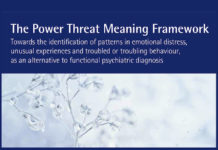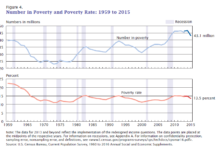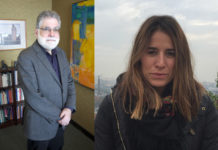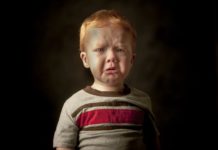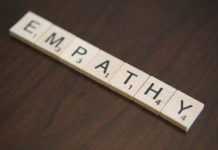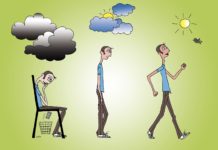Psychotherapy is THE Biological Treatment
Psychotherapy addresses the brain in the way it actually develops, matures and operates. The process for brain change involves deactivation — disuse, not utilizing the old brain map; and then creating a new one. Psychotherapy can deactivate maladaptive brain mappings and foster new and constructive pathways.
Letting Negative Projective Identifications Come, and Letting Them Go
In the instant I perceive that I’ve succeeded in inducing fear and shame in you, I can feel a palpable relief from my own fear and shame. This process is called projective identification. I gradually learned as a therapist to be aware of when a person seemed to be mysteriously able to create distressful emotional states in me — states that they were themselves subjectively feeling, but weren’t fully aware of.
Prominent Researcher and Psychotherapist Questions “Evidence-Based Therapy”
Dr. Johnathan Shedler recently published a paper critiquing how the term “evidence-based” is being used in the field of psychotherapy.
Living in One of R. D. Laing’s Post-Kingsley Hall Households
Kingsley Hall was the first of Laing’s household communities that served as a place where you could live through madness until you could get it together and live independently. It was conceived as an “asylum” from forms of treatment — psychiatric or otherwise — that many were convinced were not helpful, and even contributed to their difficulties. By the time I arrived in London in 1973 to study with Laing there were four or five such places. Getting in wasn’t easy.
What is the Evidence for Empirically Supported Treatments in Psychology?
New meta-scientific review questions the evidence for the gold standard psychotherapies and empirically supported treatments.
The Power Threat Meaning Framework One Year On
The team that developed the Power Threat Meaning framework as a diagnostic alternative reflects on the response to the framework after one year.
Reflections on 25,000 Hours of Being With People in Extreme States
Being with someone in an extreme state or other emotional pain, it feels like we’re two young friends who have ridden our bikes to a quiet place by the river and my friend turns to tell me about awful things happening at home — and they cry or yell in anger while I sit there and wonder what to say or do, and realize that just being quiet is okay.
Combining Art Therapy and Mindfulness for Refugees
A new article, published in The Arts in Psychotherapy, describes the ways art therapy and mindfulness have benefitted refugees and asylum seekers in Hong Kong.
Opening Doors in the Borderlands: An Interview with Liberation Psychologist Mary Watkins
MIA’s Micah Ingle interviews Mary Watkins about reorienting psychology toward liberation and social justice.
German Psychologists Declare “the Drugs Don’t Work”
Jürgen Margraf and Silvia Schneider, both well-known psychologists at the University of Bochum in Germany, claim that psychotropic drugs are no solution to mental...
“Silent” Forms of Child Abuse Strongly Tied to Depression
Psychological abuse and childhood neglect are strongly associated with depression in adulthood, according to a meta-analysis of childhood trauma and depression published in this month’s issue of the Journal of Affective Disorders. “The findings clearly highlight the potential impact of the more ‘silent’ types of childhood maltreatment (other than physical and sexual abuse) on the development of depression,” the researchers conclude.
Climate Change, Mental Health and Collective Action: An Interview with Jennifer Freeman
In an interview with MIA's Akansha Vaswani, narrative therapist Jennifer Freeman calls for a shift away from individualistic approaches to 'eco-anxiety' and toward responses that connect us all to a counter-tsunami of action for the planet.
Why is the Field of Psychotherapy Still Fractured into Different Approaches?
Psychotherapy is dominated by contradicting schools of thought, exhibits a gap between research and practice, and repackages old ideas rather than finding clinical consensus.
Psychotherapy is Less Effective and Less Accessible for Those in Poverty
A special issue explores the connection between poverty, mental health, and psychotherapy.
Constructing Alternatives to the DSM: An Interview with Dr. Jonathan Raskin
Dr. Raskin discusses psychotherapists’ dissatisfaction with current psychiatric diagnostic systems and explores alternatives.
Psychology Needs New Concepts and Healing Models for Racial Trauma
Contemporary empirical research explores new ways to conceptualize and heal racial trauma through anticolonial and sociohistorical lenses.
Curing Schizophrenia via Intensive Psychotherapy
I believe that an Intensive Psychotherapy can lead to healing and, often, a cure of psychotic states. By cure I mean the cessation of delusions and hallucinations, and a gradual titration off of antipsychotic medication, with the cure lasting—even without continuing psychotherapy.
A Biopsychosocial Model Beyond the Mind-Body Split
Can a renewed biopsychosocial approach, grounded in an updated philosophy, foster person-centered medicine, and psychiatry?
The Role of Intergenerational Trauma in the Perpetuation of Childhood Maltreatment
A new study examines the role parent borderline pathology plays in the perpetuation of childhood maltreatment.
Data Challenges Superiority of Manualized Psychotherapy
New data fails to support the promotion of manualized psychotherapy as superior to non-manualized forms of psychotherapy.
The Woeful Underfunding of Psychotherapy by Health Insurers
Psychotherapy reimbursement rates have been in decline for decades, even though insurance premiums have risen sharply. This is mystifying given that the vast majority of people prefer psychotherapy over medications, science shows it rivals the benefits of medications, and it saves insurance carriers money.
Therapist Empathy Predicts Success in Psychotherapy
An updated meta-analysis reveals that therapist empathy is a predictor of better psychotherapy outcomes.
Suicide Rates Rise While Antidepressant Use Climbs
Multiple media sources are reporting on new data from the CDC revealing a substantial increase in the suicide rate in the United States between 1999...
Researchers Question “Gold Standard” Status of Cognitive Behavioral Therapy
Researchers argue for plurality and diversity among psychotherapy approaches and question the perceived superiority of Cognitive Behavioral Therapy (CBT).
The Genetics of Schizophrenia: A Left Brain Theory about a Right Brain Deficit in...
In recent months, two teams of researchers in the UK and the US published complementary findings about the epigenetic origins of schizophrenia that have scientific communities who indulge in ‘genetic conspiracy theories’ abuzz. While these results are intriguing, and no doubt involve pathbreaking research methodologies, this line of thought represents a decontextualized understanding both of the symptoms that are typically associated with schizophrenia, and their causes.






